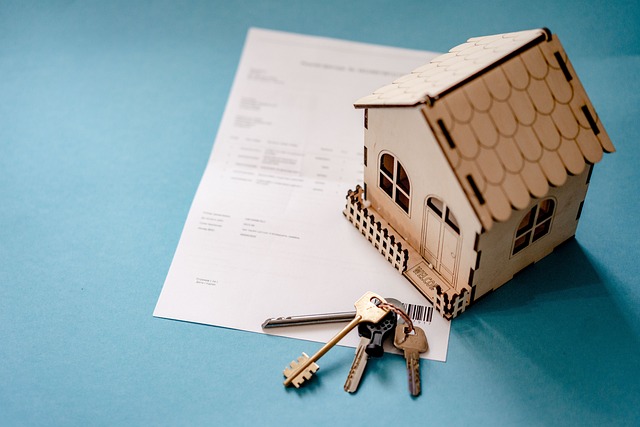Housing Grants in Australia – Non-Repayable Support for Home Buyers
In Australia, housing grants continue to offer financial support to individuals looking to buy or improve a home without the need for repayment. These programs are often available through public and private institutions and may be combined with other options such as home refinance for those already owning property. Eligibility typically depends on personal circumstances, income level, and property type. Understanding what kind of grants exist, how to check your eligibility, and where to apply can guide better decisions during the home-buying or refinancing process. Learn how housing support works and what options may be available based on your situation.

What types of housing grants are available in Australia?
Australia offers several housing grant programs to support different homeownership scenarios:
-
First Home Owner Grant (FHOG): This national scheme provides a one-off payment to eligible first-time homebuyers. The grant amount and specific conditions vary by state and territory.
-
HomeBuilder Grant: Introduced in 2020, this temporary federal program offers grants for new home construction and substantial renovations.
-
Regional Home Guarantee: This initiative aims to support eligible homebuyers in regional areas by providing a government guarantee on part of their home loan.
-
Indigenous Home Ownership Program: Designed to assist Aboriginal and Torres Strait Islander people in purchasing their own homes through low-interest loans and other support.
-
State-specific grants: Many states and territories offer additional grants or concessions, such as stamp duty exemptions or reductions for first-time buyers or pensioners.
How can you qualify for housing assistance programs?
Eligibility criteria for housing grants in Australia typically include:
-
Citizenship or residency status: Most grants require applicants to be Australian citizens or permanent residents.
-
Age requirements: Some programs have minimum age restrictions, often 18 years or older.
-
First-time buyer status: Many grants are specifically for those who have never owned property in Australia before.
-
Property value limits: Grants often have maximum property value thresholds, which can vary by location.
-
Occupancy requirements: Many grants stipulate that the property must be used as the applicant’s principal place of residence for a certain period.
-
Income thresholds: Some programs have maximum income limits for eligibility.
-
Construction or renovation criteria: Certain grants may only apply to new constructions or substantial renovations meeting specific standards.
Where can you apply for housing grants based on your situation?
The application process for housing grants varies depending on the specific program and your location:
-
State Revenue Offices: For state-based grants like the First Home Owner Grant, applications are typically submitted through the relevant state or territory revenue office.
-
Federal Government: Programs like HomeBuilder are administered at the federal level, with applications often processed through state revenue offices.
-
Indigenous Business Australia: For the Indigenous Home Ownership Program, applications are managed directly through this organization.
-
Financial institutions: Some grants can be applied for through participating lenders when you’re arranging your home loan.
-
Local councils: Certain local government areas may offer additional grants or concessions, requiring applications through the council.
What documentation is typically required for grant applications?
When applying for housing grants, you’ll generally need to provide:
-
Proof of identity (e.g., driver’s license, passport)
-
Evidence of Australian citizenship or permanent residency
-
Contract of sale for the property
-
Builder’s contract (for new constructions or renovations)
-
Income statements or tax returns
-
Bank statements
-
Statutory declarations (if required)
How do housing grants interact with home refinancing options?
For existing homeowners considering refinancing, it’s important to understand how housing grants can complement this process:
-
Renovation grants: Programs like HomeBuilder can provide funds for substantial renovations, which could be combined with refinancing to access additional equity.
-
First Home Owner Grant for refinancing: While not directly applicable, those who received the FHOG may need to consider ongoing occupancy requirements when refinancing.
-
Stamp duty concessions: Some states offer stamp duty relief for refinancing under certain circumstances, which can be viewed as a form of financial assistance.
-
Energy efficiency grants: Certain states offer grants for energy-efficient home improvements, which could be leveraged alongside refinancing for home upgrades.
What are some unique insights about housing grants in Australia?
-
Grant stacking: In some cases, eligible applicants can combine multiple grants and concessions, significantly reducing the upfront costs of homeownership.
-
Time-limited offers: Some grants, like HomeBuilder, are introduced as temporary measures, making it crucial to stay informed about current opportunities.
-
Regional focus: Many recent initiatives aim to encourage homeownership in regional areas, offering more generous terms for buyers outside major cities.
-
Impact on property market: The introduction or changes to grant programs can influence property prices and demand, particularly in the first-home buyer segment.
-
Ongoing review: Grant programs are subject to regular review and may change based on economic conditions and government policies, necessitating up-to-date information when planning a property purchase or refinance.
In conclusion, housing grants in Australia offer significant support for homebuyers and existing homeowners looking to improve their properties. By understanding the types of grants available, eligibility criteria, and application processes, Australians can make informed decisions about leveraging these non-repayable support options in their homeownership journey, whether buying for the first time or considering refinancing options.




